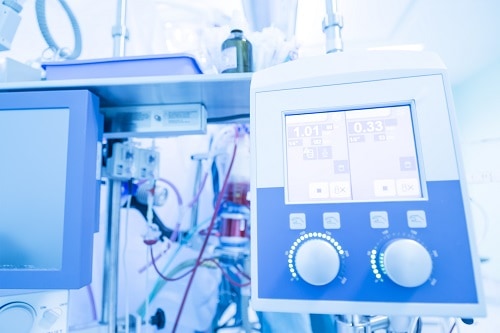Peristaltic pumps are used in many applications where other pumps wouldn’t guarantee safety or purity of the materials being pumped. This is because the pumping mechanism is outside of the tube which is used to transport materials. They are named peristaltic pumps after the digestive mechanism of humans and nearly all animals, called peristalsis.
The best illustration of peristalsis in the human or animal world is when a snake eats a mouse. The snake swallows the mouse and sets of muscles start contracting toward the back of the snake, pushing the mouse through the snake’s digestive system. This is how we swallow and how all mammals and reptiles swallow.
In a peristaltic pump, the pump is pinched by “shoes” or rollers that compress the tube in the direction the fluids are intended to flow. As the tube closes, it forces the fluids forward through the tube. Also, as the part of the tube behind the roller opens back up, it creates a vacuum and encourages fluid to flow into the tube via a partial vacuum.
Applications of Peristaltic Pumps
Peristaltic pumps are used in a variety of industries for a variety of specialty fluids. Peristaltic pumps can keep sterile fluids sterile and keep aggressive fluids from damaging equipment. They are used to pump IV fluids, slurries with high concentrations of solids, aggressive chemicals and other fluids that must be kept from the outer environment.

Medical Uses
During open heart surgery, peristaltic pumps are used in the heart-lung machine to reduce hemolysis. They are also used in dialysis machines and in medical infusion pumps.
Testing and Research
Peristaltic pumps can also be used as carbon monoxide monitors, in analytical chemistry experiments and for dosing due to their extreme accuracy.
Agriculture
They are also used to extract maple tree sap in configurations called “sapsucker pumps.”
Other Uses:
Peristaltic pumps are used for food manufacturing, chemical handling in the printing, pharmaceutical and laundry soap industries. They are used in engineering and manufacturing applications such as pulp and paper plants. They are also common in water and wastewater treatment and for sewage applications.
To learn more or to enquire about any kind of pumps, call Pump Solutions Australasia today: 08 9408 1544.
